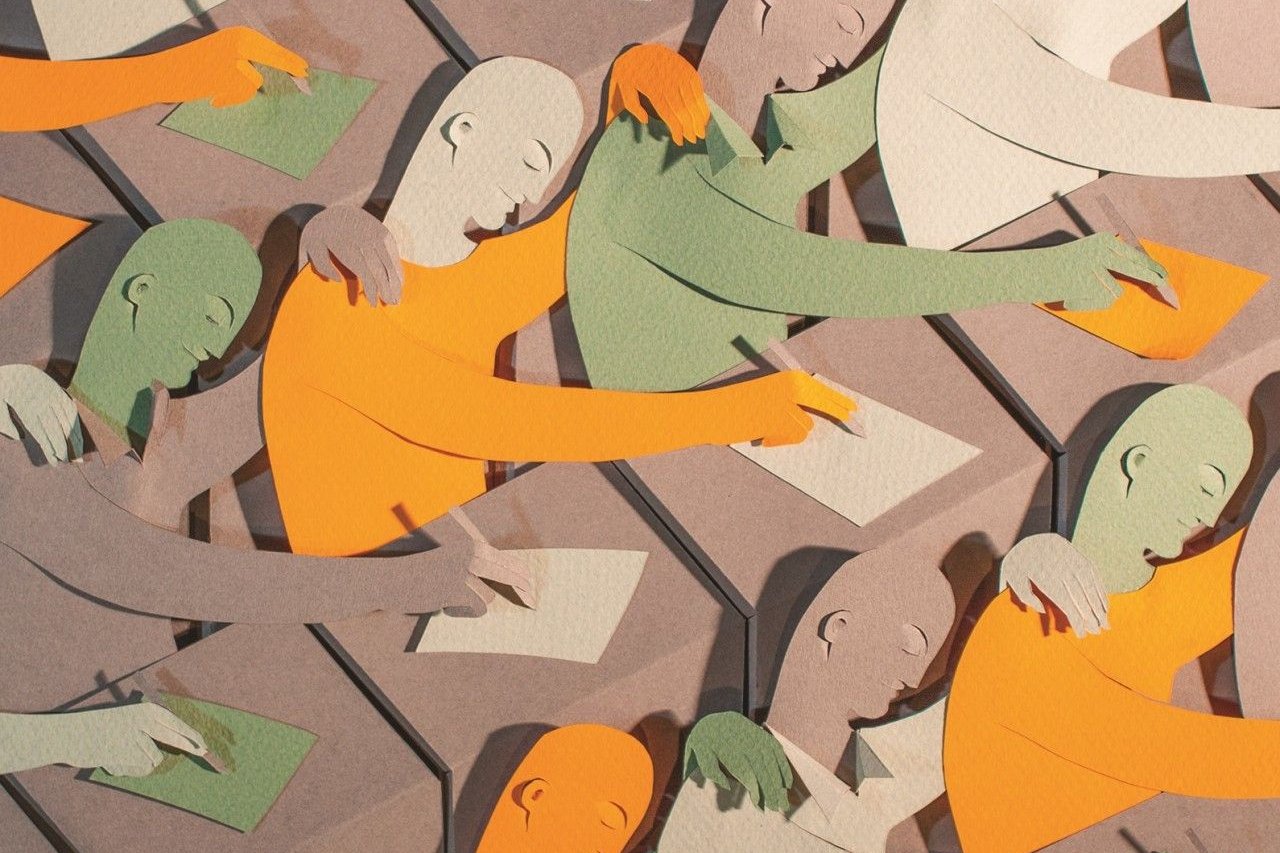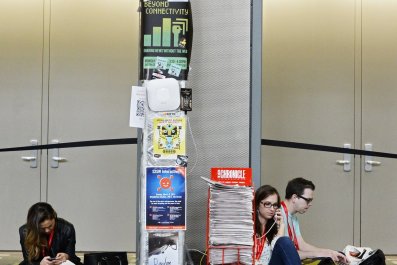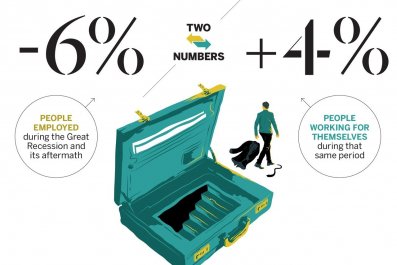On February 24, the Dalai Lama came to Silicon Valley to talk business. As with most public appearances made by His Holiness, the event was mobbed. Four thousand people packed the Leavey Center, Santa Clara University's basketball arena, for a glimpse of his red robes—occasional cries of "We love you, Dalai Lama!" were heard—and countless others watched a live streaming broadcast online. The topic of discussion? How to be a better boss.
The ennui and existential despair that comes from spending long hours hunched over in a cubicle, eating lunch at your desk, and counting the days until your next vacation aren't conducive to kindness. The question is: How do you change it?
Traditional business thinking focuses on extracting the maximum from workers—and maximizing profits in the process. But the pressure we feel to perform well and get results makes our blood pressure rise and our stress levels skyrocket, even absent an overtly abusive boss or competitive colleagues.
The Dalai Lama, naturally, is a great proponent of the Buddhist principle of compassion; tonglen is the Tibetan word for the practice of connecting with the suffering of others. According to the Dalai Lama, our individual happiness is inextricably tied to the happiness of those around us. But only recently have scientists begun to quantify the impact of compassion at work—the place where most of us spend the majority of our waking hours.
The epidemic of workplace stress, anxiety and depression costs U.S. businesses an estimated $200 billion to $300 billion a year in lost productivity, employee turnover and legal, medical and insurance bills. Six years ago, the Dalai Lama helped establish and fund the Center for Compassion and Altruism Research and Education (CCARE), an institute at Stanford's School of Medicine that defines its mission as undertaking "a rigorous scientific study of the neural, mental and social bases of compassion and altruistic behavior." The Dalai Lama's contribution, $150,000, was the largest donation he had ever made to a non-Tibetan cause.
Today scientists are exploring the links between compassion and productivity in the workplace. Our bodies respond to positive social interactions at work in surprisingly robust ways: lower blood pressure and heart rate, a boosted immune system, optimal hormone levels. Health-care costs are significantly higher for stressed-out workers: One study showed expenditures that were a whopping 46 percent greater than for those employees with low levels of stress. And more than half of the workers surveyed by the American Psychological Association reported that they considered turning down a promotion, leaving a job or looking for a new job because of chronic stress. When there's office stress, high turnover follows—along with the additional time and cost of training new employees.
Being "pro-social"— helping out an overloaded co-worker, say, or forgiving another for mistakes—stimulates the reward centers in the brain. That was one takeaway from a CCARE Compassion and Business Conference held last spring. And when we give to others, it feels good, a study in the physiological effects of altruism found; the same brain areas light up when we receive money (or food, or sex).
And when we see someone else help another person, we experience a heightened state of well-being that researchers call elevation: In a business setting, when bosses are fair and self-sacrificing, they improve the morale of their employees, who in turn feel happier, more loyal and committed and are more likely to act in a helpful way for no particular reason. Creating an office culture of kindness, then, is contagious—and makes good business sense.
{C}
So can you teach co-workers to be more compassionate? Scientists say yes—compassion is just like physical fitness, in that it can be cultivated and maintained through practice. Think of it as exercises to find your happy place. CCARE's researchers have developed an eight-week compassion training program based, in part, on Tibetan Buddhist practices and principles of social psychology. In studies of the program—which focuses on techniques for collaboration, resilience and meditation—people who go through the training feel more empathy for others and are happier, more satisfied, less stressed and less lonely. It is immensely popular; sessions are usually sold out weeks in advance, and everyone from tech workers and teachers to doctors and hospice workers have signed up.
"We train people in guided meditation, and support it with specific exercises in class that are lab-tested," says Monica Hanson, a senior teacher who has taught the compassion program at Stanford for four years. For example, one class will work on approaching difficult people or situations, which can be a daily occurrence in the workplace.
When things go wrong in the workplace, people are often most critical of themselves, so participants in another class write letters to themselves showing self-compassion. Participants think of real-life difficult situations they feel they mishandled, and then write helpful, supportive letters to their alter egos. While being understanding about your shortcomings can be tougher than being understanding of someone else, the practice gets results: One recent UC Berkeley study, "Self-Compassion Increases Self-Improvement Motivation," showed that students who were reminded to be self-compassionate after failing a test were motivated to work harder than those who were not.
Hanson is careful to point out that this kind of thinking isn't magical—it's work. "We don't put a Tiffany ribbon around it," she says. "But the techniques enable people to re-engage in a way that is different and meaningful and useful, where previously they were stuck." She admits that even she still has some skepticism every now and again. "But then I show up day after day, and I see it really works."
The practice of listening well, learning how to accept challenges and thinking about how to work with difficult colleagues to build compassion may seem soft, but it is immensely practical. "It not only helps people be happier at work, but also more invested in work, with a clear sense of priority and effectiveness," Hanson says. "It's cultivating a willingness to take on challenges and move things forward, whereas before it was just avoidance and obstacles."
At Santa Clara, the Dalai Lama described modern work life as "a big machine," one that we're all a part of. As social animals, we all need to cooperate to succeed, he said. As he talked, he took care to look everyone in the eye as much as possible. Despite the self-centeredness that dominates business, taking others into account is actually better for your bottom line. "For your own interest, it's actually better to help others," he explained.





















